Our Research Group
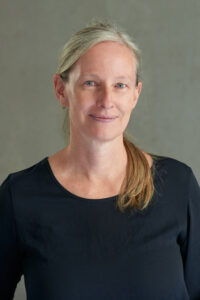
Prof. Dr. Silke Robatzek
Group Leader
robatzek(at)biologie.uni-muenchen.de
Silke comes from Germany, she is a Heisenberg Professor at the Ludwig-Maximilian-University Munich, supported by the Deutsche Forschungsgemeinschaft. Her research focuses on molecular plant-microbe interactions, having published on immune receptor signaling and trafficking. She holds a doctoral degree in Biochemistry (University of Cologne, Germany) and a Habilitation in Plant Cell Biology (University of Basel, Switzerland). In 2001 she was a postdoctoral fellow at the Friedrich Miescher Institute for Biomedical Research in Basel, Switzerland. In 2006, she obtained a group leader position at the Max Planck Institute for Plant Breeding Research in Cologne, Germany, followed 2009-2018 by her employment at the Sainsbury Laboratory in Norwich, UK. She is the recipient of an ERC Young Investigator Grant 2012 call, and since January 2021 she is holds an ERC Advanced Grant. Her team now examines how plants interact with vascular pathogens and investigates novel bacterial infection strategies.
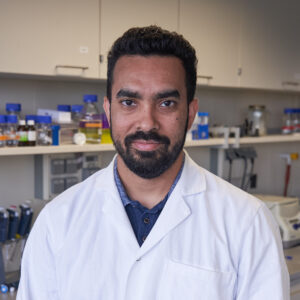
Dr. Oséias Feitosa-Junior
Postdoctoral researcher
oseias.feitosa(at)lmu.de
Oséias is from Brazil. He did his Ph.D at the University of Sao Paulo and had also one year of experience as a visiting student at the UC, Berkeley and as an affiliate at Joint Genome Institute, DOE. In our group his main focus is to investigate components of the hosts’ immune system against X. fastidiosa. Multi-omics and bioinformatics are tools that will be used to evaluate and achieve candidates for immunity and susceptibility components.
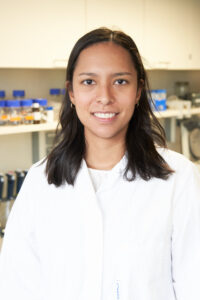
Maria Camila Isaza-Alvarez
Research Assistant
cam.isaza(at)campus.lmu.de
Camila, originally from Colombia, pursued her undergraduate studies in Biology before completing a Master’s degree in Molecular and Cellular Biology in Germany. Her primary research interest lies in ensuring the development of healthy and resilient crops to support the survival of current and future generations. In our lab, she is focused on establishing a protocol for the efficient regeneration of olive trees through callus tissue culture. This work is crucial for subsequent studies on the infection of olive trees by the pathogen Xylella fastidiosa.
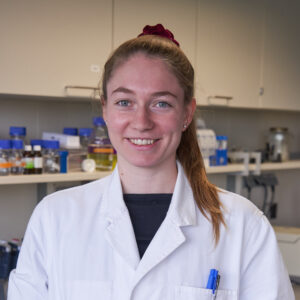
Laura Krassini
doctoral candidate
laura.krassini(at)biologie.uni-muenchen.de
Laura comes from Germany. Her main focus is to determine the role of bacterial extracellular vesicles during the infection process in plants. As a model organism Laura uses the plant pathogen Pseudomonas syringae pv. tomato DC3000. For the project several techniques are developed and combined to get a better understanding of the cargo of bacterial EVs in planta.
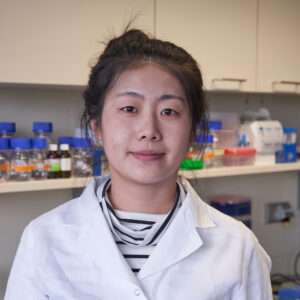
Jingli Lao
doctoral candidate
jingli.lao(at)biologie.uni-muenchen.de
Jingli Lao comes from China. Her main focus is to investigate the relationship between microbiome and plant disease. She is also interested in bioinformatics, which is a crucial tool for analyze the metagenomics.
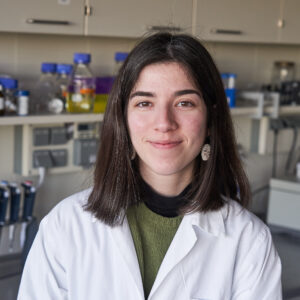
Marta Martin-Rivero
Technical Assistant
marta.marin-rivero(at)bio.lmu.de
Marta is our Technical Assistant. She did her Bachelors in Biotechnology in Spain, where she is from, and she is very passionate about plant-microbe interactions. She supports the research in our team.
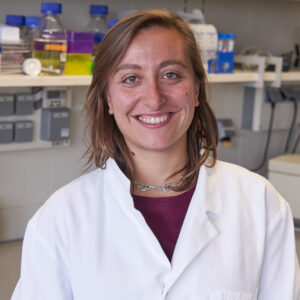
Dr. Eliana Mor
Postdoctoral researcher
el.mor(at)biologie.uni-muenchen.de
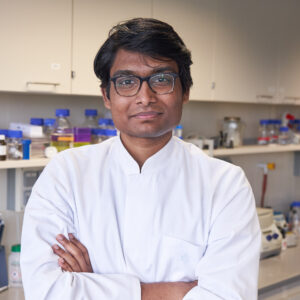
Kaarthik Ramesh
Doctoral candidate
kaarthik.ramesh(at)campus.lmu.de
Kaarthik comes from India. His main focus is to investigate the cell wall integrity sensing mediated immunity in plants against pathogen infection. He is currently developing a pipeline to observe the effect of pathogen-induced cell wall degradation in planta using advanced microscopy techniques and engineering novel reporter lines to parallelly identify key components in the plant’s immune response.
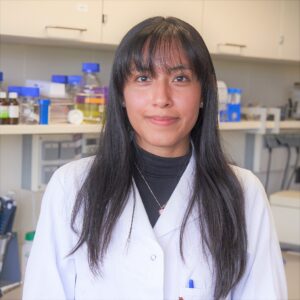
Neysa Rodríguez-Murillo
research assistant
n.rodriguez(at)lmu.de
Neysa is a biologist from Costa Rica. In our group she is in charge of the characterization and transformation of the Xylella fastidiosa strains, as well as the optimization of protocols for olive tissue culture and its transformation. She also studies the role of prophages in Xylella virulence.
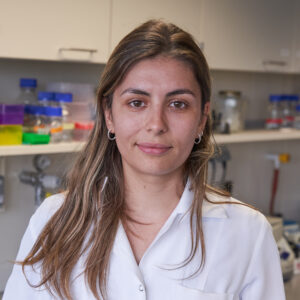
Alessa Ruf
doctoral candidate
alessa.ruf(at)lmu.de
Alessa is originally from Germany and studied Biotechnology in France and the Netherlands. Her main research focus is understanding the role of bacterial extracellular RNA in infection using RNA-sequencing. Furthermore, she is interested in developing RNA-based controls of plant pathogens.
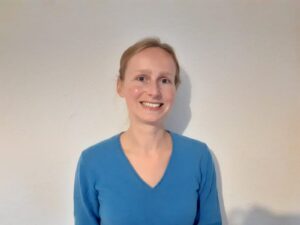
Dr. Katarzyna Rybak
Postdoctoral researcher
katarzyna.rybak(at)biologie.uni-muenchen.de
Kasia comes from Poland. Her main research focus is to identify plant immune components involved in Xylella fastidiosa recognition using reverse genetic and proteomic approaches in a plant model system Arabidopsis thaliana. She is also interested in optimizing assays to test immune responses in a non-model plant system such as olive.
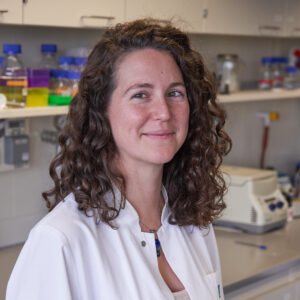
Dr. Constance Tisserant
Postdoctoral researcher
C.Tisserant(at)biologie.uni-muenchen.de
Constance comes from France. Her main focus is to describe the olive tree immune system, by combining assays investigating classical immune responses and genomic analysis. She is also interested in understanding the olive immune response against Xylella fastidiosa specifically.
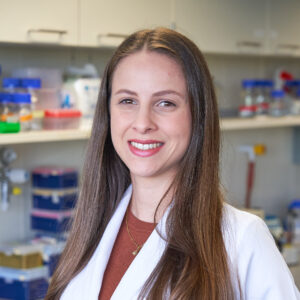
Dr. Natalie do Valle Capelli
Postdoctoral researcher
na.capelli(at)bio.lmu.de
Natalie comes from Brazil. Her main focus in our lab is to establish Olive tissue culture process using diverse plant organs like explants. She is also interested in establish an efficient protocol for genetic transformation of Olives using cells callus culture, since transformations and subsequently plant regeneration are crucial to produce plants more resistant to Xylella.
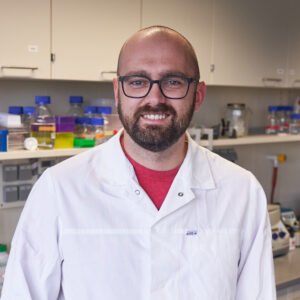
Dr. Filipe Vieira
Postdoctoral researcher
fi.vieira(at)lmu.de
Filipe comes from Portugal. His main focus is to study genetic adaptation of Xylella fastidiosa to the plant environment. To do that he wants to combine transcriptomic and translational analysis with the development of new molecular tools that will enable the visualization of Xylella cells in their natural environment, the xylem vessels of plants.

